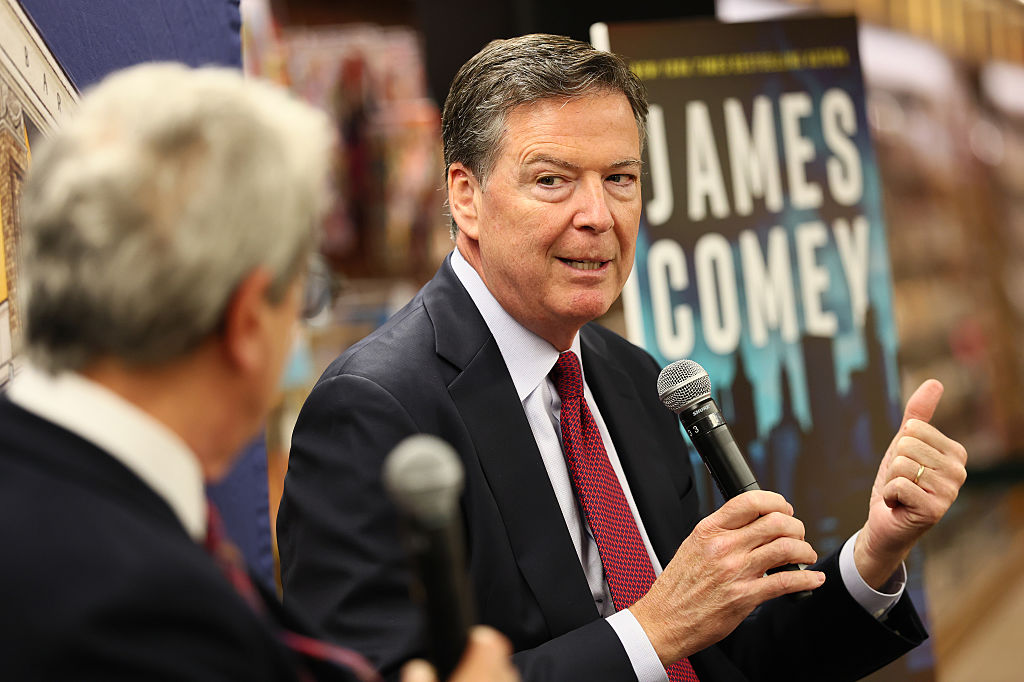The Senate is not going to call witnesses in the impeachment trial of Donald Trump, and to all appearances the whole thing is nearly over. Acquittal is imminent, and supposedly serious commentators are on Twitter wailing in unison with Democratic activists. But what they are saying does not make any sense — it’s contradictory. On the one hand, they say that the case against Donald Trump is open-and-shut: so utterly persuasive in objective terms that only the Senate Republicans’ bad faith has prevented them from admitting it. On the other hand, Democrats and the pundits don’t trust voters to be persuaded by this purportedly airtight case — hence all the lamentations about an outcome that will leave Trump’s fate to be decided in November at the ballot box rather than having him removed early by vote of the Senate.
But if the case against Trump is really so strong, why isn’t it a safe bet that voters will dump Trump? Should they be persuaded? It’s not as if there hasn’t been plenty of publicity for the allegations behind the impeachment effort. No doubt the Washington Post, MSNBC, CNN, and the rest will have much more to say about them over the next nine months, too. Nobody can claim the voters haven’t been told. So again, why not trust them to do the right thing, if the right thing is really so objective and obvious?
The question has an easy answer, of course. The people hoping for the Senate to remove Trump are Democrats, but they aren’t democrats, and they think the American voting public already made the wrong choice in 2016. The case against Trump then was supposed to be equally clear — he was a Russian puppet, as Hillary Clinton claimed, and a fascist or a nincompoop or whatever. There was meant to be no way he could have won the 2016 election. Yet he did win, fair and square and conclusively. (Unlike the case in 2000, when George W. Bush won the 2000 election only by the margin provided by Florida and its contested recount.)
Democrats have refused to accept the results of constitutional democracy ever since. They reflexively retreat to a belief that Russian election meddling handed the 2016 contest to Trump. And when you point out the problem with the ‘Trump is obviously guilty, but we can’t trust the public to vote him out’ narrative, liberals reflexively assert that interference will sway the 2020 election, too. After all, they say, what Trump was trying to do in Ukraine was an attempt to sabotage the 2020 election. Here again, however, there’s a disconnect within the argument itself: just how was a Ukrainian investigation into Hunter Biden’s ties to an oligarch-connected oil company going to affect the 2020 election, if it’s really so safe to assume that the young Biden did nothing improper?
The claim that Joe Biden’s reputation would be badly damaged by the mere fact of a foreign investigation into his son is hard to credit, considering that Joe Biden’s reputation hasn’t been destroyed by his son’s many well-known sensational scandals involving sex and drugs right here in this country. Is it at all credible that American voters would be mostly indifferent to Hunter Biden’s colorful personal scandals but would be deeply troubled by some arcane Ukrainian corruption investigation?
This is not a plausible voter psychology. But what is psychologically all-too-plausible is that Democrats are in denial about what American voters want and why they rejected Hillary Clinton in a majority of states in 2016. Rather than admitting the painful truth, which is that the Democrats will always have a hard time winning states that add up to a majority of electoral votes so long as they field candidates like Hillary Clinton and Joe Biden, Democrats prefer to imagine that James Comey handed the election to Donald Trump by announcing in October 2016 that an FBI investigation into Hillary Clinton’s emails was being reopened. If the Russians didn’t elect Donald Trump, then James Comey did — anybody but the American people. Because if the American people elected Donald Trump, it means they chose someone even as shocking as Trump over the respectable liberal agenda that Clinton embodied, and which Biden now champions.
The Democrats’ psychology is mirrored by that of the pundits, not just because the pundits tend to be Democratic-leaning but because the same fear of rejection applies to almost everyone in the pundit class. NeverTrump Republicans and neoconservatives could not, and still cannot, accept the idea that their program has been so thoroughly repudiated by the public that voters would rather have someone like Donald Trump in the White House than anyone who supports the Bush-McCain-Romney vision of the country.
The NeverTrumpers, neocons, and a great many progressive pundits stake their self-mythology, their very identities, on the idea that their programs are not controversial or controvertible, but are simply technocratically wise and uniquely morally in line with democratic ideals. They are concerned not only to get their own way, but to get their way without serious opposition — hence the relentless demonization of their opponents as racists, sexists, homophobes, fascists, deplorables, authoritarians, a ‘cult’, illiberals, hicks, and even — most ironically — enemies of constitutional democracy. These are the supporters of the constitutionally elected president we’re talking about as the subjects of those epithets. You can believe that Trump is evil or stupid, and the unelected federal bureaucracy and Deep State are wise and benevolent, but at least be honest with yourself about your attitude toward Americans voters. If you don’t think they’re fit for constitutional self-government, admit it.
And then we can move ahead. If the Constitution and democracy as we presently have it are no good, then what revolutionary changes must you recommend? Some progressives are quite clear about this: they want to make representation within the Senate proportional to population, as in the House, and would abolish or transform the electoral college. They want a plebiscitary democracy, not one moderated by federalism. If the problem with a democracy that can elect Donald Trump goes deeper than that, if the American people themselves, not the president, are the real problem, then let the NeverTrumpers and center-left pundits come right out and say so — only a deplorable country, with a deplorable people, can elect such a deplorable president. Believe that, and you should drop the pretense of being a liberal democrat and embrace your true identity: an advocate of enlightened despotism, albeit under a despotic enlightened class rather than a single well-tutored monarch.
Donald Trump was elected to break the grip of such a class on our country — a constitutional president to defy the extra-constitutional authority of the elite. His success in doing so has been limited, and it will continue to be. But his enemies recognize what he and the defiant public that voted for him represent — a rebellion against their authority and a threat to the belief system on which their power depends.


























